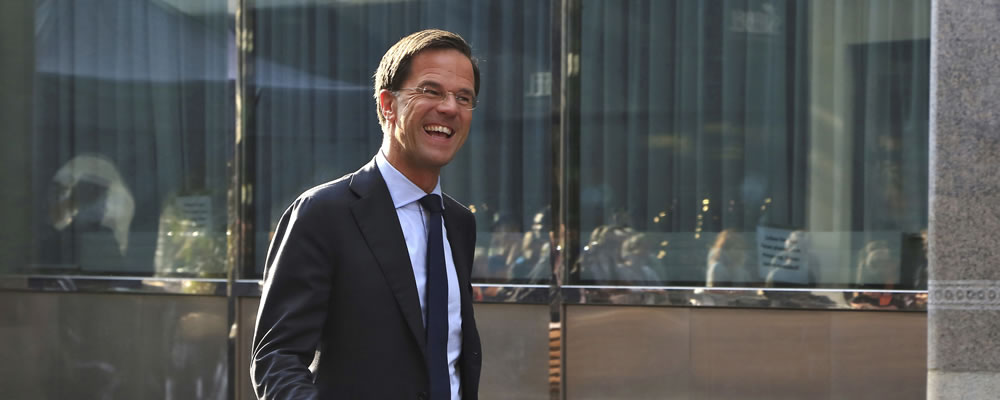The Euro Australian Dollar (EUR AUD) exchange rate recovered from a near two-week low overnight on Wednesday following the defeat of populist candidate Geert Wilders in the Dutch elections.
Despite some polls suggesting that he was neck and neck with Prime Minster Mark Rutte, Wilders’ far-right Freedom Party failed to keep pace with Rutte’s liberal VVD party, winning only 20 seats to the VVD’s 33.
Wilders had made bold proclamations that he would ban the Koran and pull the Netherlands out of the European Union if he was victorious, an outcome that had placed considerable pressure on the single currency in recent weeks.
However the rejection of Wilders’ populist policies by the Dutch electorate helped to reverse the decline in the Euro as it sent a clear message that the Dutch people believed in the stability of the EU.
In an interview with Bloomberg following his victory, Prime Minister Mark Rutte said;
‘After Brexit, after the US elections, the [Dutch] people have said no to another country where the domino stone of the wrong side of populism would topple over.’
Investors are now more optimistic that the French electorate will also vote in a similar manner to their Dutch counterparts and reject Marine Le Pen’s National Front party in the upcoming French elections as she also seeks to lead her country out of the EU.
However, markets remain cautious as Rutte still has the task of putting together a new government, which could require weeks of negotiations with other parties as the Netherland’s proportional representation system requires a government to hold at least 75 of the 150 seats in government.
Meanwhile, the Australian Dollar was weakened earlier this morning by an unexpected spike in domestic jobless figures.
The Unemployment Rate jumped from 5.7% to 5.9% in February, its highest levels in over a year as employment fell by 6,400. This disappointed investors who had hoped the economy would add 16,500 new jobs last month.
Markets were also worried about a decline in the total hours worked by the Australian workforce as it fell by 20.5 million hours last month.
However, the labour data was not all negative as the Australian Bureau of Statistics (ABS) reported that the number in full-time employment rose by 27,100, reversing a drop of 44,100 in January that had contributed to the fall in hours worked.
Overall the report is likely to cast doubt on the potential of a rate hike from the Reserve Bank of Australia (RBA) in 2017 (and maybe even early 2018) leading to further weakness in the ‘Aussie’.
Looking ahead, analysts predict that the downturn in EUR AUD may persist over the coming weeks thanks to further European election jitters.
Sean Callow, senior currency strategist at Westpac said;
‘AUD should outperform EUR in the next few weeks, as we head into the first round of the French presidential election and with Australia’s domestic news flow likely to be broadly supportive.’
EU data released tomorrow is likely to support this forecast as the Eurozone Trade Balance is expected to slip from a surplus of €28.1bn at the start of the year.
Meanwhile the rapid recovery in commodity prices will likely allow the Australian Dollar to strike higher in trading tomorrow as Chinese Futures soared during the Asian session last night, prompting iron ore to rocket back above $90 a tonne.
Current Interbank Exchange Rates
At the time of writing the EUR AUD exchange rate was trending around 1.39 and the AUD EUR exchange rate was trending around 0.71.



